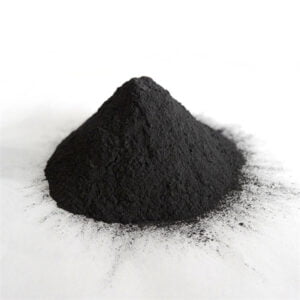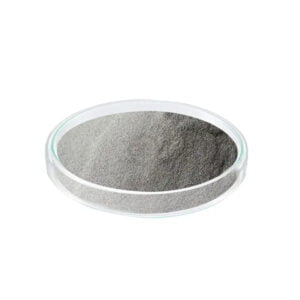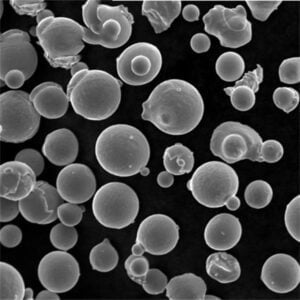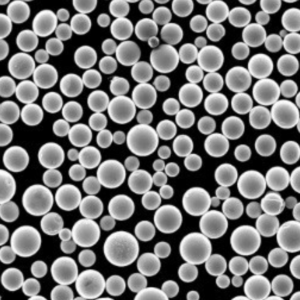Overview
Spherical nickel powder is a specialty metal powder used in various applications that require high purity, uniform particle size distribution, and good flowability. Some key details:
- Composition: 99%+ pure nickel
- Particle shape: Highly spherical
- Typical size range: 1-45 microns
- Common applications: MLCCs, conductive pastes, welding, 3D printing
- Key properties: Purity, sphericity, low internal porosity, smooth surface, controlled microstructure
Types of Spherical Nickel Powder
Spherical nickel powder is available in different purity grades, particle sizes, size distributions, and microstructures.
| Type | Description |
|---|---|
| Pure Nickel | 99%+ nickel content, low impurities like Fe, C, O, N |
| Alloyed Nickel | Small additions of Cu, Co, etc. to modify properties |
| Ultrafine | Sub-micron particles <1 micron diameter |
| Nanosized | Particles under 100 nm diameter |
| Monodisperse | Very narrow particle size distribution |
| Bimodal distribution | Mix of coarse and fine particles |
The high purity and sphericity allows spherical nickel powder to meet exacting application needs for performance and processability.

Composition and Properties
Spherical nickel metal powder has the following typical composition and properties:
| Parameter | Typical Values |
|---|---|
| Nickel (Ni) content | 99%+ |
| Oxygen (O) | <300 ppm |
| Carbon (C) | <100 ppm |
| Iron (Fe) | <10 ppm |
| Sulfur (S) | <10 ppm |
| Particle shape | Highly spherical |
| Apparent density | 2.5-3.5 g/cc |
| Tap density | 3.5-4.5 g/cc |
| Specific surface area | 0.05-0.5 m2/g |
| Crystallite size | 50-500 nm |
| Flow rate | 25-35 s/50g |
| Compressibility | 20-30% |
The high purity, sphericity, smooth surface, and controlled microstructure provide consistency in performance.
Applications of Spherical Nickel Powder
Some major applications of spherical nickel powder include:
| Application | Description |
|---|---|
| MLCCs | Inner electrodes in ceramic capacitors |
| Conductive pastes | Silver-based pastes for electronics |
| Welding | Metal inert gas and laser welding |
| 3D Printing | Binder jetting and selective laser sintering |
| Brazing alloys | High temperature braze fillers |
| Nickel plating | Electroless nickel coatings |
The uniform particle size, low internal porosity, good flow and high purity make spherical nickel advantageous for these applications over irregular nickel powder.
Specifications and Grades
Spherical nickel powder is available in a variety of particle size distributions categorized into different grades:
| Grade | Particle Size (microns) |
|---|---|
| Microfine | 1-5 |
| Fine | 3-10 |
| Medium | 5-15 |
| Coarse | 10-45 |
| Bimodal | Mix of sizes |
Standards organizations have specifications for spherical nickel powder:
- ASTM B800 – Standard for Spherical Powder
- ISO 4499 – Metal powders for additive manufacturing
- Customer-specific quality requirements
Size Distribution
The particle size distribution is an important parameter that influences packing density, flowability, and performance. Tighter size distributions have more consistent properties.
Global Suppliers and Pricing
Some leading global suppliers of spherical nickel powder include:
| Supplier | Location |
|---|---|
| Vale | Brazil |
| Jinchuan | China |
| Jilin Jien | China |
| Sandvik | Sweden |
| BASF | Germany |
Pricing depends on factors like:
- Purity grade
- Particle size distribution
- Purchase quantity
- Production method (gas/water atomization, electrolytic)
| Grade | Indicative Pricing |
|---|---|
| 99% pure | $25-40 per kg |
| 99.9% pure | $45-70 per kg |
| Ultrafine | $80-150 per kg |
Comparison Between Nickel Powder Types
| Parameter | Spherical Nickel | Irregular Nickel |
|---|---|---|
| Particle shape | Highly spherical | Jagged, irregular |
| Flowability | Excellent | Poor |
| Apparent density | Higher | Lower |
| Surface smoothness | Very smooth | Rough |
| Purity | 99%+ achievable | typically 96-98% |
| Cost | Higher | Lower |
Advantages of spherical nickel powder:
- Smooth surface gives better interface bonding
- Higher packing density means higher performance
- Consistent microstructure aids performance reproducibility
- Good flow allows high-speed production processes
- Achievable purity expands application range
Disadvantages:
- Higher cost than irregular nickel powder
- Controlled production is more complex
- Limited ultrafine size availability
So the spherical shape and tuned properties provide benefits offsetting the higher price in critical applications.
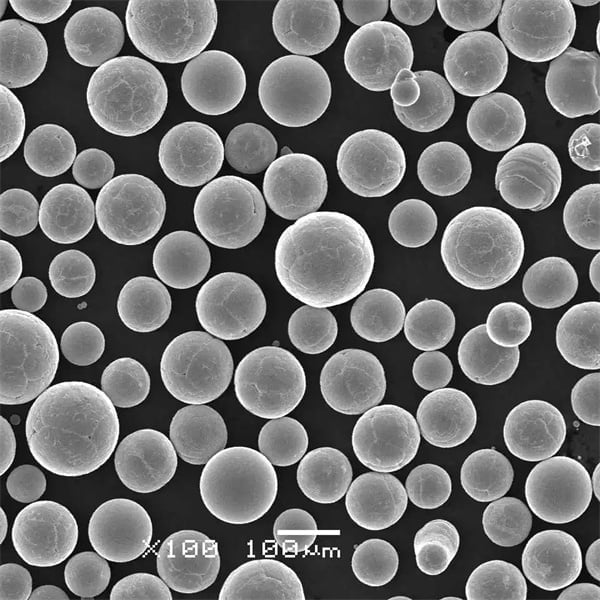
FAQs
What is spherical nickel powder used for?
Spherical nickel powder is used where consistent particle size, high purity, good flow and smooth interface is needed – MLCC electrodes, conductive adhesives, welding, brazing, 3D printing.
How is spherical nickel powder made?
It is produced via gas or water atomization where molten nickel is broken into droplets which solidify into highly spherical particles. The process is precisely controlled to achieve the desired powder characteristics.
Is spherical nickel powder expensive?
Yes, spherical nickel powder is approximately 1.5 – 2 times more expensive than irregular powder due to the controlled production process and stringent quality requirements it must meet. However for critical applications, the enhanced properties are worth the price premium.
Does shape affect nickel powder properties?
Yes, spherical powder has higher apparent density, better flowability, higher compressibility, lower internal porosity, and smoother surface compared to irregular powder. This significantly improves performance in applications.
What is the purity level of spherical nickel powder?
Spherical nickel powder can achieve 99%+ purity, much higher than the typical 96-98% range for irregular nickel. Ultra-high purity grades up to 99.98% nickel content are also produced for specialty applications requiring it.
What are the particle sizes available?
Spherical nickel is available from 1 micron to 45 micron diameter. Finer grades down to nanoscale are also produced. The powder can be classified into different size distributions or supplied with bimodal mixes of particle sizes.
What is the best size range for MLCC electrodes?
For multilayer ceramic capacitors (MLCC), fine and ultrafine nickel powder with D50 of 2-5 microns produces the best performance as smaller particles pack tightly and deliver more capacitance.
Is flowability an important characteristic?
Yes, excellent flowability allows smooth feeding during high-speed deposition processes likes screen printing. It also leads to uniform packing density, so flow is a key property in most spherical nickel applications.




